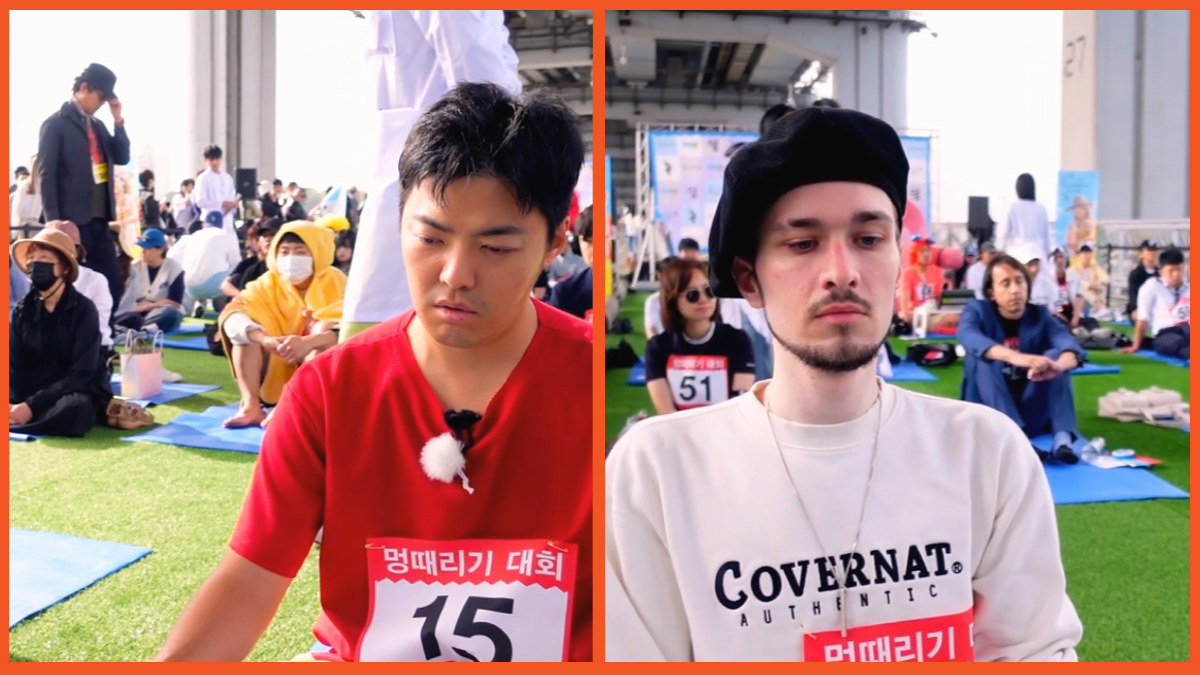In 2014, South Korean artist Woopsyang came up with the concept for a competition that couldn’t have been more appropriate than in this insanely-paced twenty-first century: The Space-out Competition.
Although it originated in Seoul ten years ago, the contest has since been adopted in other Asian cities like Beijing, Taipei, Hong Kong, and Tokyo, and even migrated to Europe, where the fourth iteration of the international competition was held in 2017 in Rotterdam, the Netherlands. How can the passive attitude of spacing out be made into a competition, you may ask? In theory, the objective seems pretty straightforward: Do absolutely nothing for 90 minutes straight. To the average person, this may sound incredibly boring. Is that all there is to it? Or is there some deeper meaning?
About the Internationally held Space-out Competition and its relevance in today’s time
Everyone gets to stretch before the clock starts counting. During the hour and a half of zoning out, contestants sit – some lie down – on yoga mats and gaze into nothingness with thousand-yard stares. As a participant, talking, eating, taking a peek at your phone, and falling asleep are examples of actions that will get you disqualified.
But you needn’t go thirsty or feel faint for lack of nutrients. Participants can hold up one of the four colored cards they have next to them: red for receiving a massage, blue for being provided with water, yellow for being fanned, and black to address any other disturbances. In order to evaluate who’s most relaxed and decide on a winner, participants’ heart rates are measured every 15 minutes. The audience can also vote on who they think deserves to ultimately stand on the podium, taking into consideration the contestants’ incentives to participate, which are all posted on a signboard.
According to the competition’s website, this initiative was motivated by how the busy, fast-paced rhythm of modern life has people struggling to chill out and take it easy. In 2022, during a Space-out Competition by the Han River, Woopsyang said during an interview: “We get scolded for zoning out at home or school. But I thought it’d be viewed as something more valuable if I gave it a purpose.”
As performance art, the Space-out Competition describes the competition’s purpose, explaining how it “means to juxtapose two groups visually.” One group is comprised of regular people living their daily busy lives, and the other is doing “nothing in a busy city.” The performative artwork aims to break down the misconception that spacing out is “a waste of time.”
The twenty-first century must be, with little doubt, the most anxiety-inducing era humanity has lived through so far. This condition is influenced by multiple factors, many of which stem from the digital world and its inseparable interconnectedness with real life. But others are socio-cultural, hinging on, for instance, how societies have grown to standardize an “acceptable level” of productivity – the conundrum starts with how productivity is defined and where it’s focused.
It is thus unsurprising that this ostensibly counterintuitive trend emerged in South Korea, a country where productivity culture, even from an early age, is quite intense, particularly if compared to some Western countries. The same could be said for other East Asia countries, including some of the ones where the competition has since been adopted.
But the Space-out Competition has a universal meaning. Doing nothing and spacing out is not necessarily unproductive, especially considering the rapid pace of our daily lives. Its purpose aligns with the importance of mindfulness practices, which are proven to help soothe irritability, cope with negative emotions, and deal with stress sparked by external pressures.
Most of us know how difficult it can be, with work and other responsibilities weighing on our shoulders, to take even 10 minutes from a busy day, but a healthy mind requires a necessary even if brief reset. The purpose, meaning, and value of the Space-out Competition is thus multifaceted. Supposing you are unable to attend this annual competition because it has not yet come to your country, this event nevertheless highlights the importance of, on a more regular basis than we’re often used to, emptying the mind, keeping restlessness at bay, and dolce far niente.
